30+ Turmeric Recipes (To Eat and Drink)
This post may contain affiliate links. Please read our disclosure policy.
What is turmeric, why you should introduce it into your diet, and how to use turmeric root (fresh or dried) in 30+ turmeric recipes, including delicious drinks!
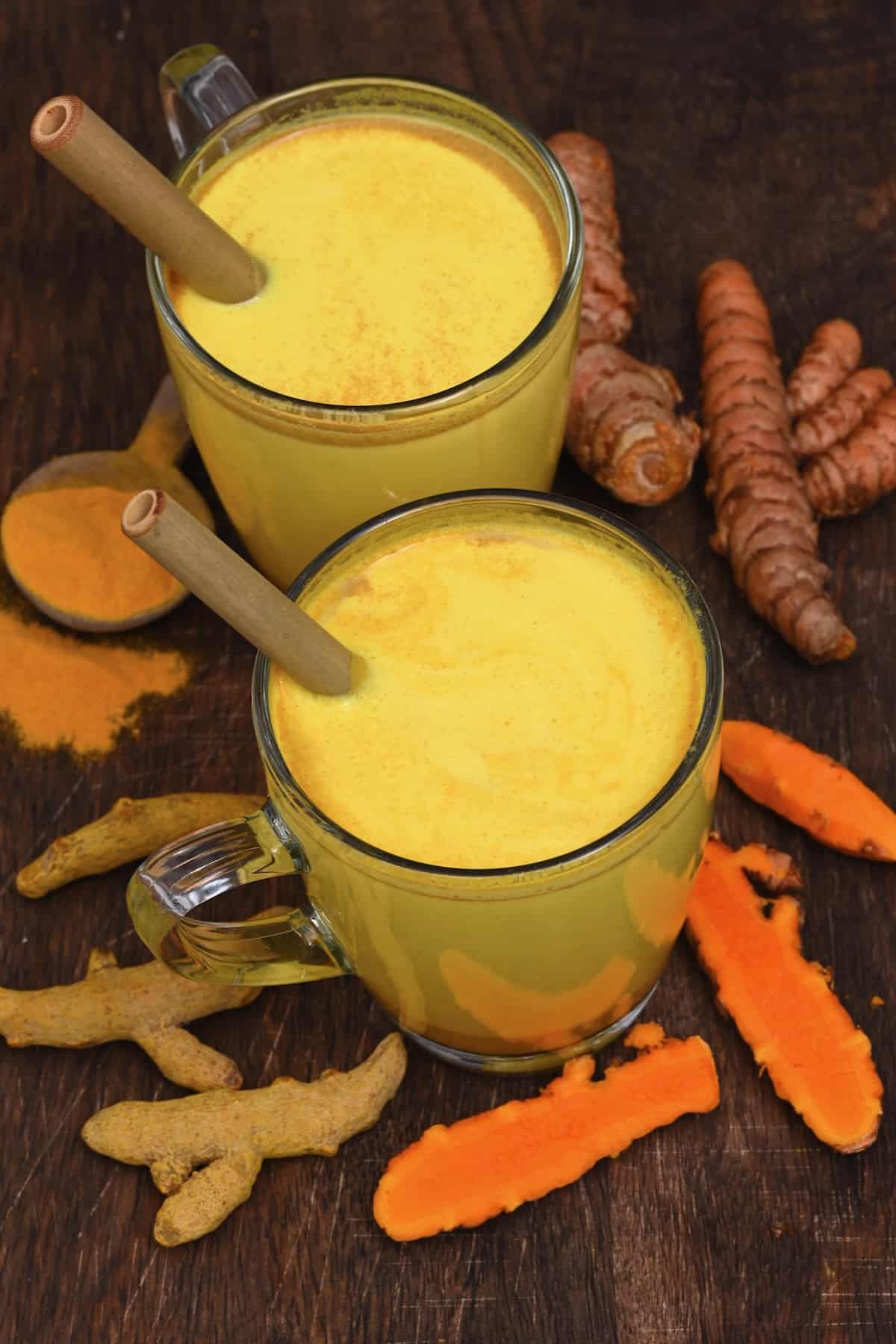
There are certain ingredients I HAVE to have on hand at all times. In terms of spices, these include homemade ginger powder, garlic, and turmeric! With a long list of ways to enjoy turmeric in food and drinks (fresh or ground), this will quickly become a new kitchen favorite of yours!
Want to save this recipe?
What Is Turmeric
Turmeric root is native to India and Southeast Asia and comes from a flowering plant in the ginger family (which is why it looks so similar!). It has a vibrant orange-yellow color and has been used for centuries in fresh and powdered form as a natural dye, flavoring, and medicinal purposes – particularly in Ayurvedic medicine – due to its antioxidative and anti-inflammatory properties (among others).
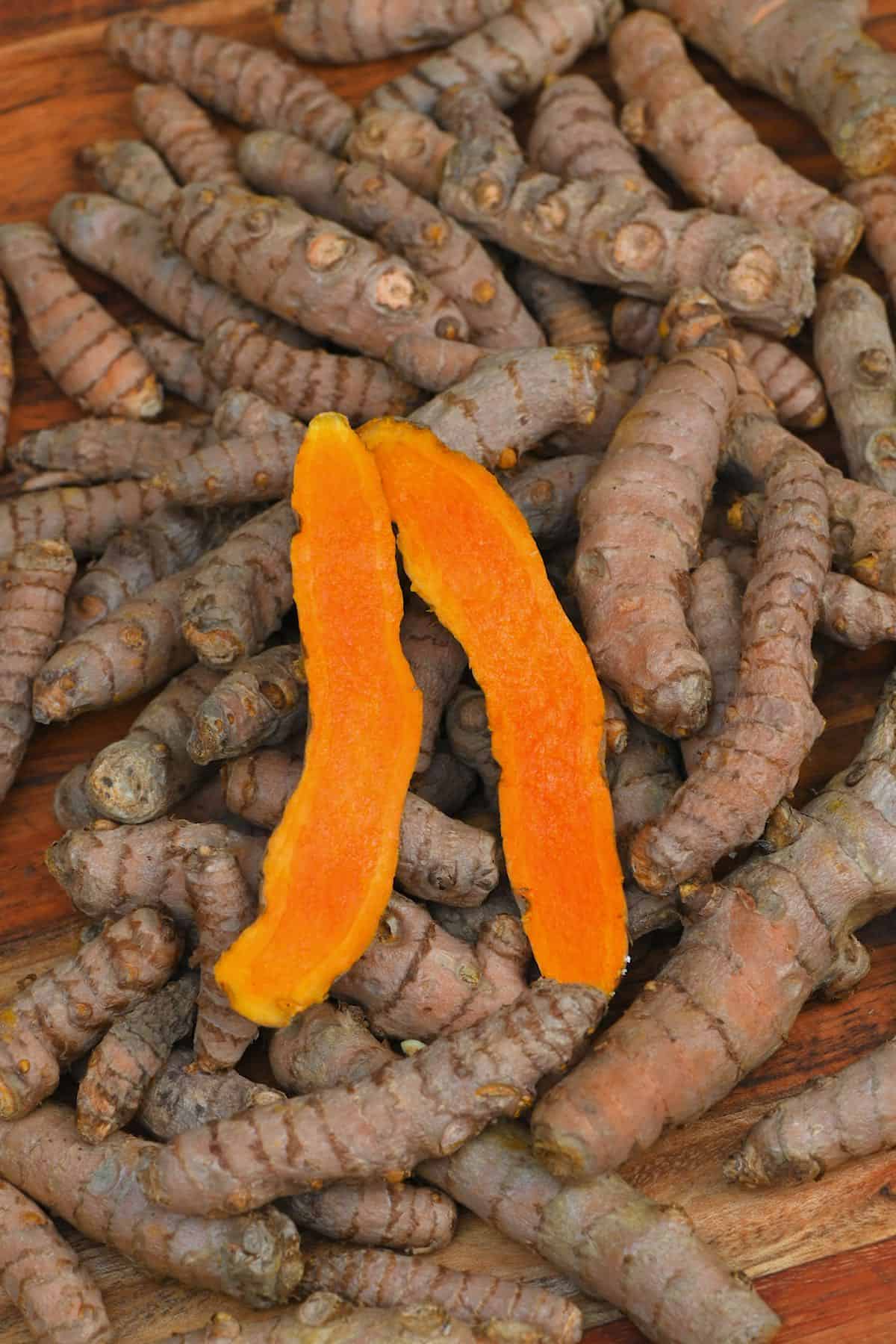
What Does Turmeric Taste Like?
It has an earthy, slightly bitter, spicy, and peppery flavor. However, most turmeric recipes use it as a spice for seasoning, so it has a fairly subtle flavor. Is turmeric spicy? Not really – it’s more warm and peppery than spicy.
What Is the Best Way to Take Turmeric
Looking at introducing (or increasing) turmeric in your diet? Follow these top tips on how to use it and how to get the most benefits from it.
- Purchasing the best quality: When possible, purchase organic from fair trade companies. Also, look out for turmeric powders that contain no fillers or dyes.
- Eat it with black pepper: To maximize curcumin absorption into the bloodstream, add 3% black pepper. Freshly cracked black pepper increases the absorption by 2000%.
- Add healthy fats, too: Curcumin is also fat-soluble, meaning it binds to the fat and goes directly to the bloodstream, bypassing the liver, and helping our bodies to absorb it. I recommend healthy fats like avocado oil, coconut oil, or nuts/seeds.
- Heat it: Heating the root (aka using it when cooking) also helps improve its bioavailability and improves its flavor, too.
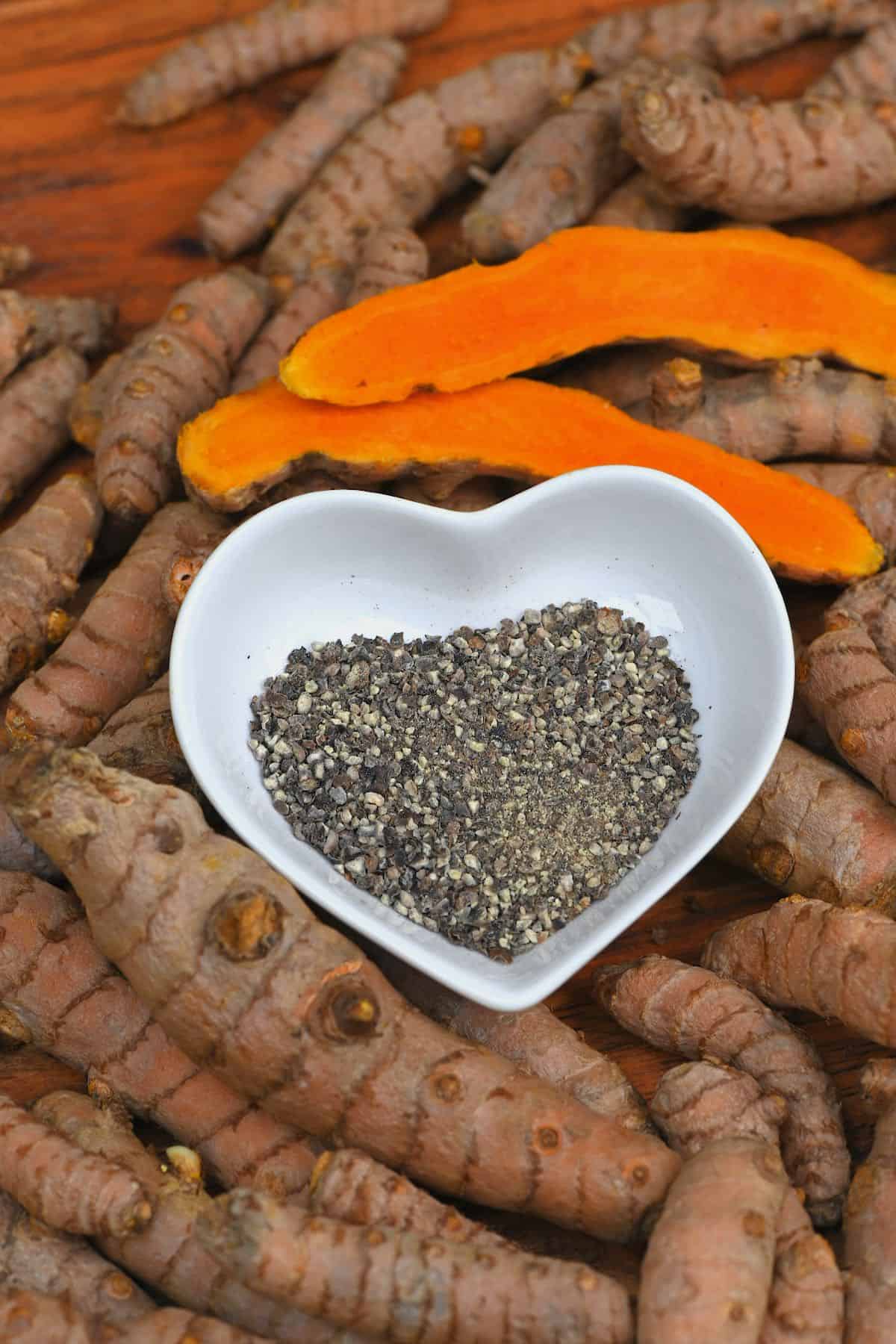
I also highly recommend wearing gloves when dealing with fresh turmeric root, as it stains. A lot.
How to Use Turmeric
Cooking with turmeric is very simple as it can be used in similar ways to most spices in many cases; add a pinch and increase to taste. It’s also used to add color to dishes. Here are my top 30+ ideas for how to eat turmeric. So whether you want to increase your intake to get you through cold and flu season or love the flavor, there’s something for everyone!
Simple Turmeric DIYs
Before any turmeric recipes, let’s look at how you can prepare turmeric root, ready to add to other dishes (or enjoy medicinally in the case of the tincture).
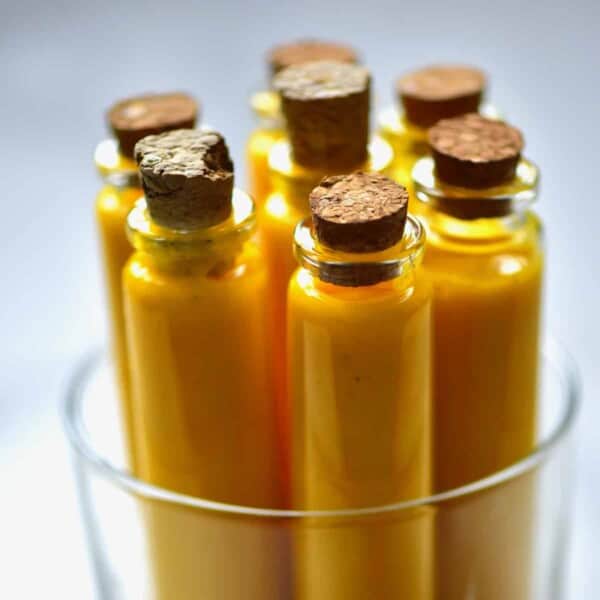
How To Juice Turmeric (With and Without a Juicer)
View Recipe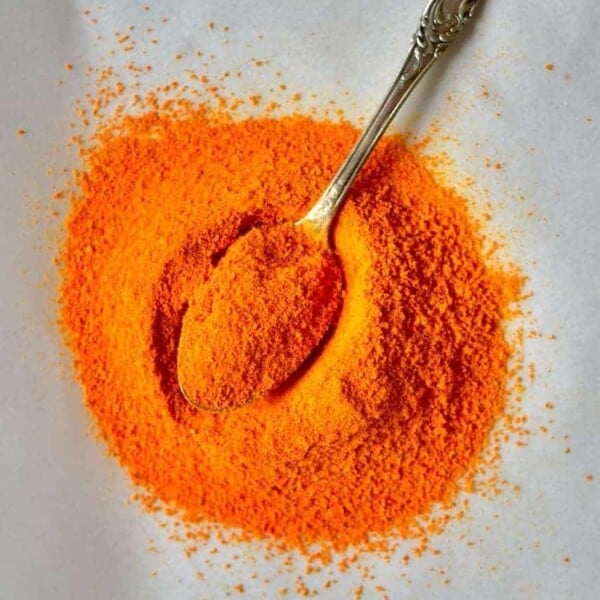
How to Make Turmeric Powder at Home
View Recipe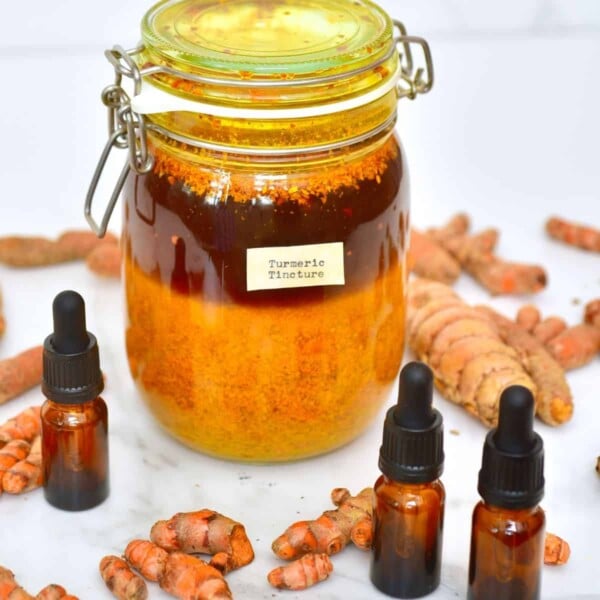
Turmeric Tincture – Nature’s Golden Medicine
View RecipeHow To Take Turmeric?
If you plan to consume it medicinally, my favorite way is either as a tincture or in liquid form as part of a liquid shot. Do so first thing in the morning, on an empty stomach, 30 minutes before having breakfast. This way, you’ll achieve the quickest absorption.
Recipes with Turmeric Root
It can be tricky to find fresh root in some countries. However, if you have access, I love to use this vibrant ingredient in several ways. Here are my favorite recipes using fresh root.
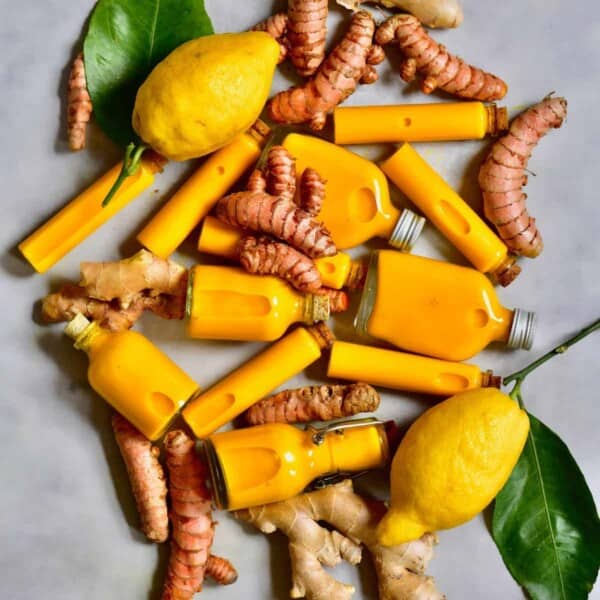
Ginger Turmeric Immune-Boosting Energy Shots (juicer recipe)
View Recipe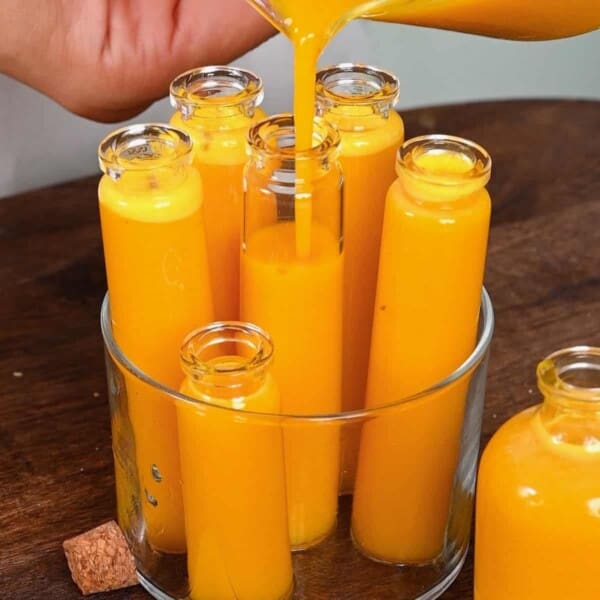
Turmeric Ginger Energy Shots (blender recipe)
View Recipe
Best Pineapple Skin Tea
View RecipeRecipes Using Ground Turmeric
My most common method of cooking with turmeric is with ground spice. However, it’s also great with “raw” recipes, too. Below are some of my favorite ground turmeric recipes. You can easily choose between using the spice fresh or ground in several cases.
If you want to convert fresh to dried (or vice versa), remember that one tablespoon of minced turmeric root = ½ teaspoon of turmeric powder.
Turmeric Drink Recipes
There are several ways to use turmeric in drinks. Be it making turmeric tea recipes or golden milk (which combines it with warming spices like cinnamon and ginger) or adding it to juices (listed above) and smoothies.
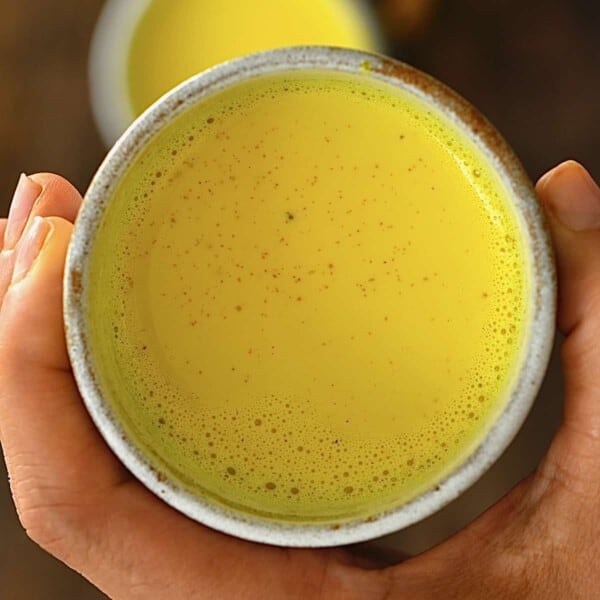
Easy 5-Minute Golden Milk
View Recipe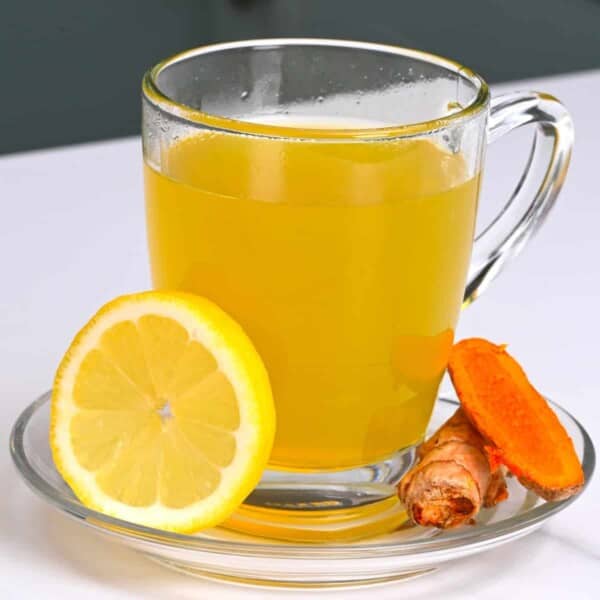
How To Make Turmeric Tea
View Recipe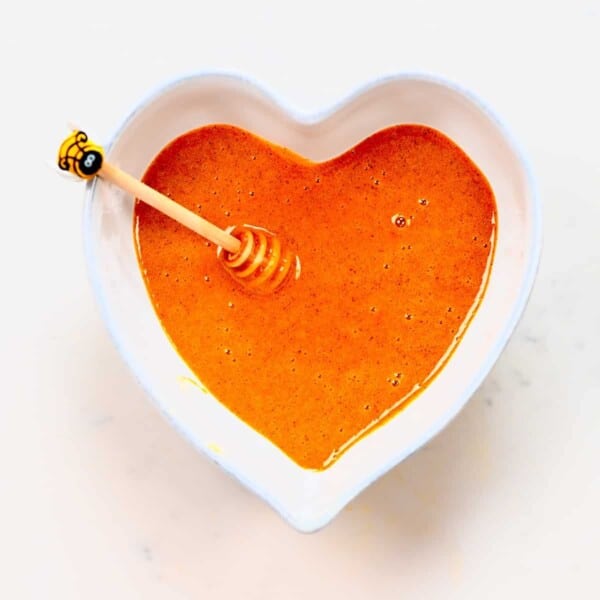
Turmeric Honey and Turmeric-Honey Shots
View RecipeYou can also easily add a pinch of turmeric to smoothies (around ¼ tsp maximum) along with a pinch of black pepper. I particularly like adding it to mango smoothies, but you can add it to almost any smoothie.
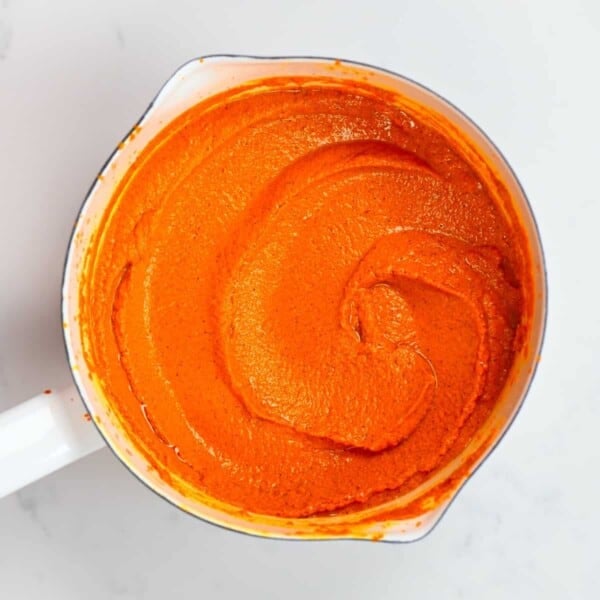
Turmeric Paste Recipe
View Recipe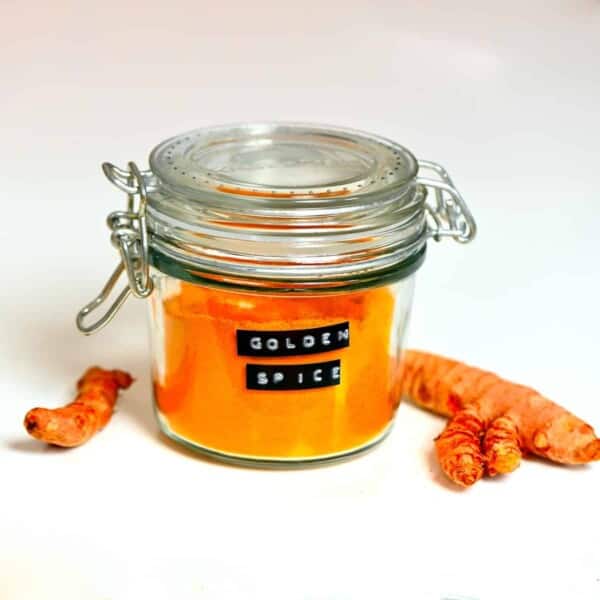
Golden Milk Spice Mix/Powder (Turmeric Latte Mix)
View RecipeSoups, Stews, and Curries
The warm and slightly pungent flavor of this root pairs wonderfully with creamy fall/winter soups and curries (both for flavor and color). Add ½ a teaspoon and increase to taste.

Turmeric and Ginger Spiced Pumpkin Soup
View Recipe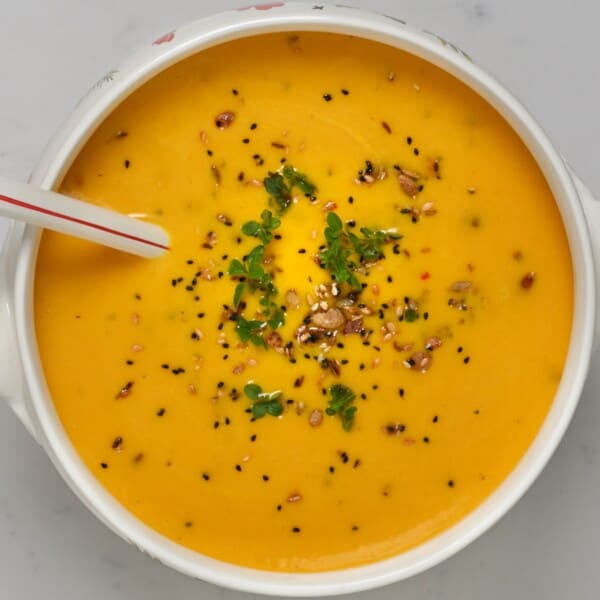
Best Roasted Butternut Squash Soup
View Recipe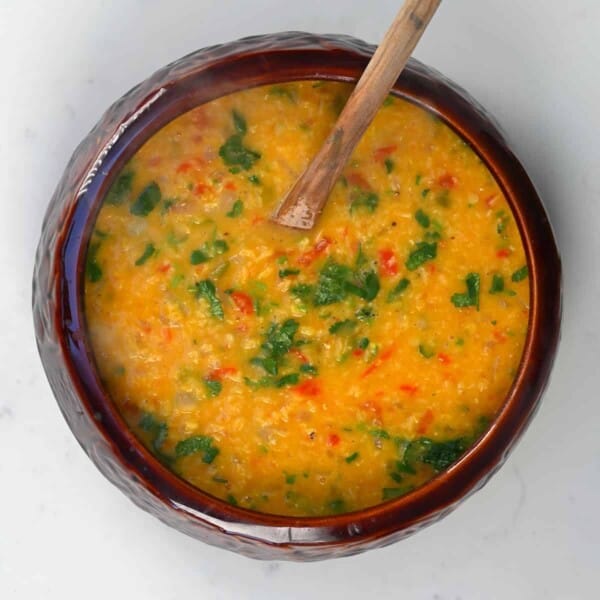
Easy Red Lentil Dal (Tarka Dal | Indian Lentil Dish)
View Recipe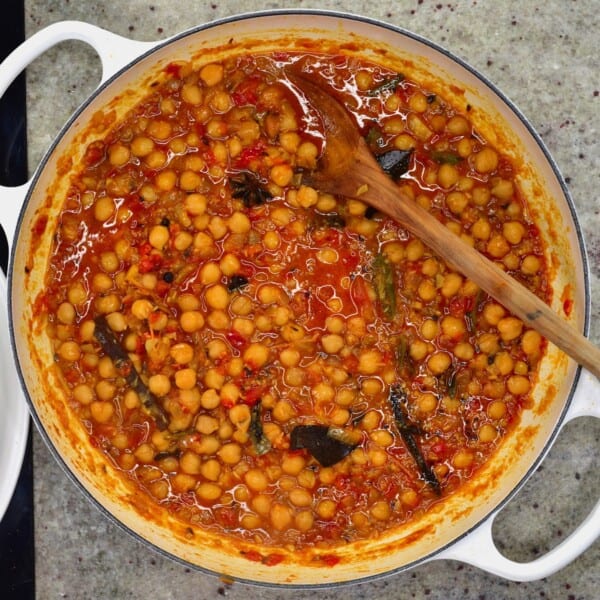
Chana Masala
View RecipeAppetizers and Sides
Turmeric uses in cooking are versatile (and delicious) ways to enjoy this spice, and luckily there are PLENTY of different ways to enjoy the spice. So if you’re not in the mood for a warming drink or creamy soup, why not try one of the below dishes to get curcumin in your daily diet? Learning how to cook with turmeric is simple.
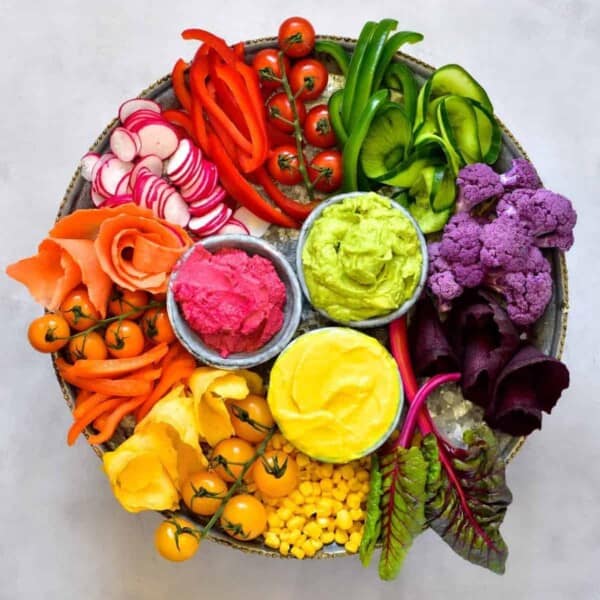
Crudite Platter (Veggie Platter with Dips)
View Recipe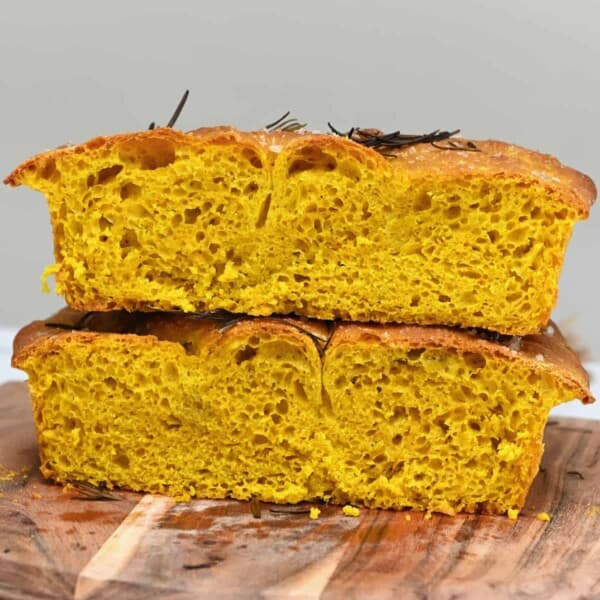
Easy Turmeric Rosemary No-Knead Focaccia Bread
View Recipe
Easy Vegetable Rice Pilaf (Yellow Turmeric Rice)
View Recipe
How to Make Colored Pasta (All Natural)
View Recipe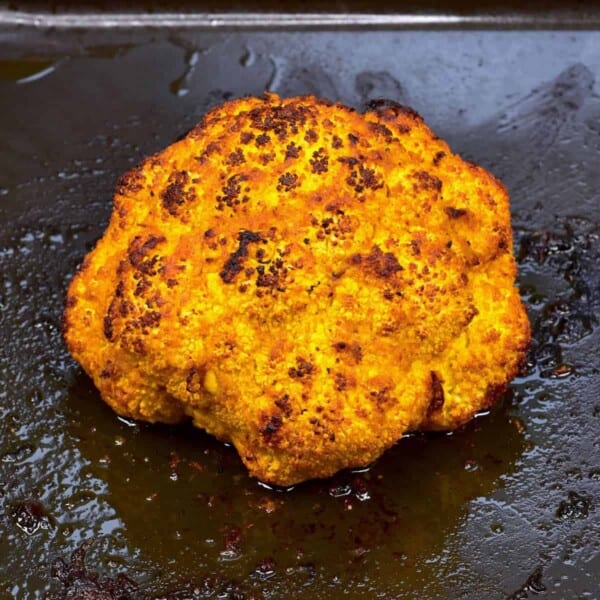
Whole Turmeric Roasted Cauliflower
View Recipe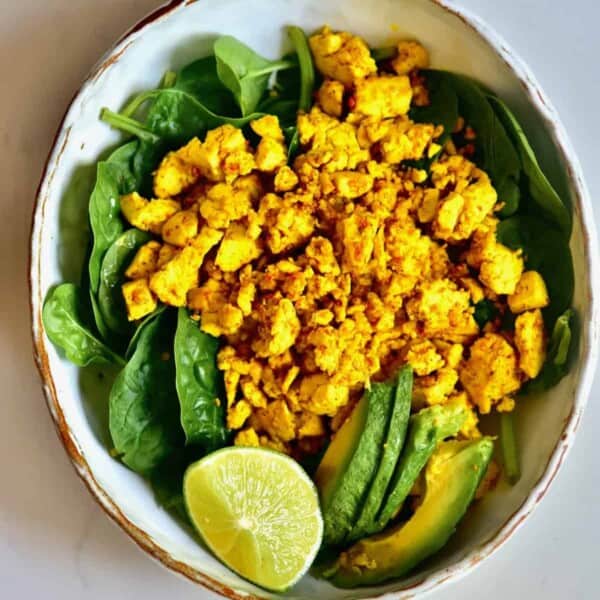
Easy Vegan Tofu Scramble
View Recipe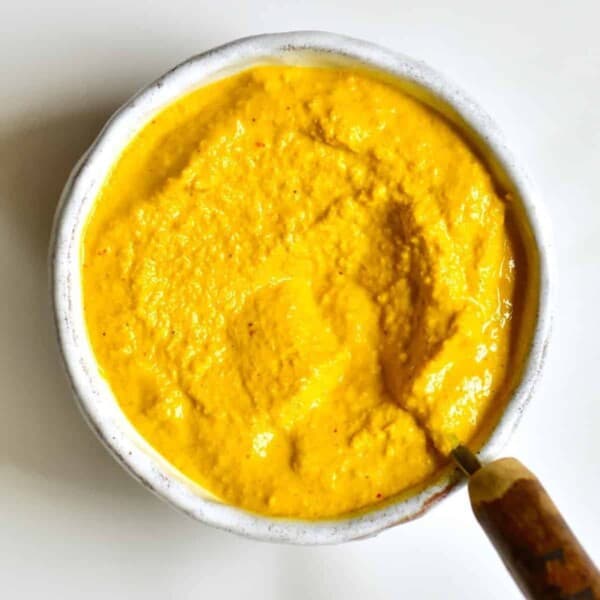
Simple Smooth Homemade Mustard
View Recipe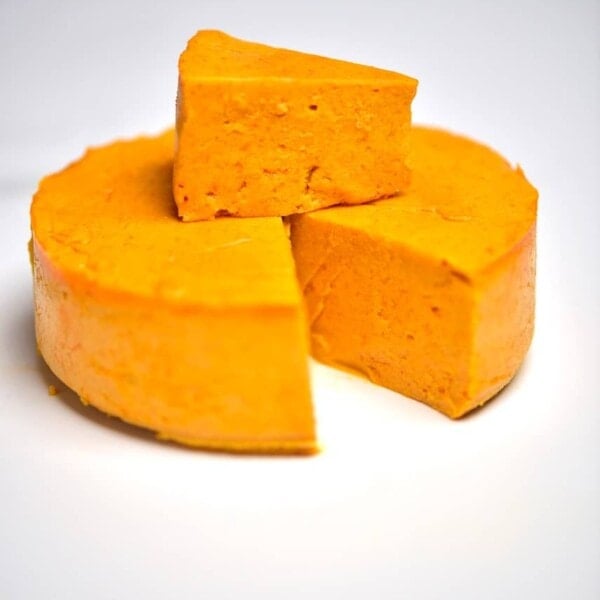
Simple Smoky Vegan Cheddar Cheese
View RecipeTurmeric Dessert and Snack Recipes
How to use turmeric in desserts (and snacks) to enhance rather than overwhelm. Here are several options, whether you want to use it to add color to a dish or for a subtle flavor.
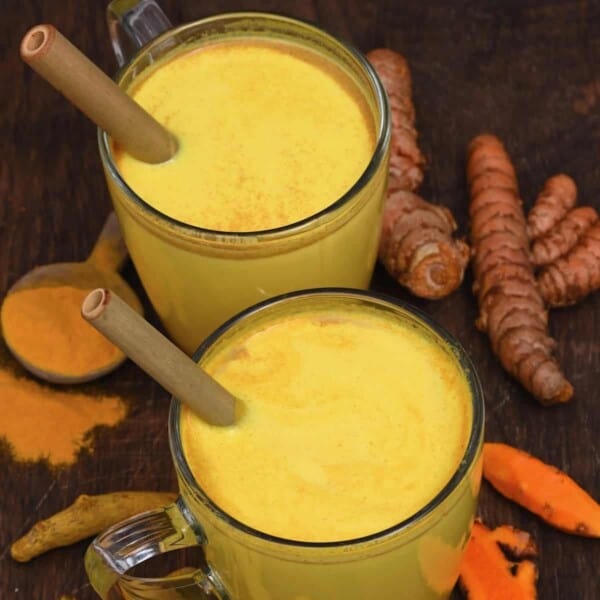
No-Bake Energy Balls
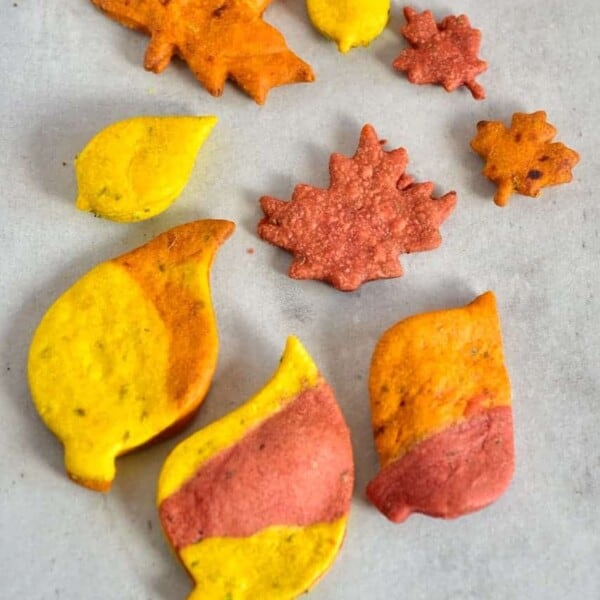
Autumn Leaves Colorful Crackers
View Recipe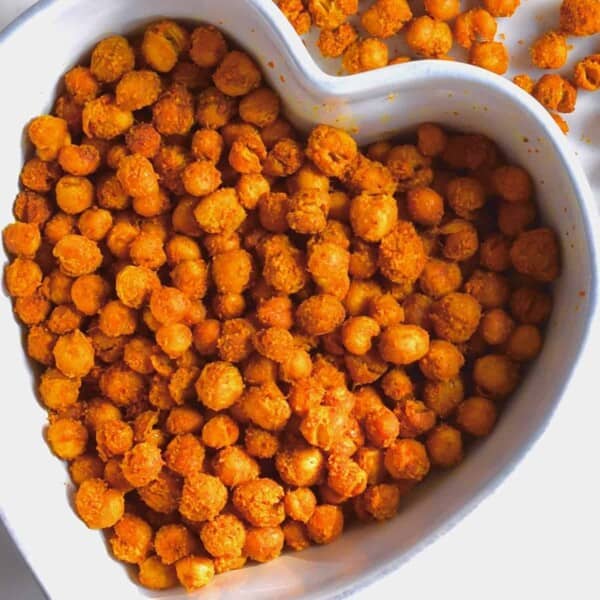
The Best Crispy Roasted Chickpeas
View Recipe
Vegan Pistachio and Lemon Tart
Certain nutrients aren’t easily absorbed by our bodies without extra help (like vitamin C helps iron absorption). Black pepper contains the compound piperine, which increases the bioavailability of curcumin by up to 2000%.
If you ever deal with fresh turmeric root, you’ve likely encountered its (annoyingly) impressive ability to stain. Luckily, I’ve pulled together an entire post on how to deal with stubborn turmeric stains.
No, though it can stain your skin when handling the raw root or applying it to the skin (i.e., in a face mask).
Whole: You can store the whole (unpeeled) root for up to 2 weeks, wrapped loosely in the fridge. Alternatively, you can freeze the root for up to 6 months tightly wrapped in cling film.
It will become less firm upon thawing. I tend to grate it directly from frozen with a micro plane grater.
Cut: Once you start using the root, wrap it tightly or store it in an airtight Ziplock bag and use it within 7-10 days.
More Recipe Round-Ups
- How to Use Ginger in 40+ Ways (Chop, Prepare, and Use Ginger)
- Guide to Smoothie Recipes
- 30+ Recipes That Use Garlic As A Main Ingredient
If you try any of these best ways to consume turmeric, let me know how it goes in the comments below. I’d appreciate a recipe card rating and would love to see your recipe recreations – tag me on Instagram @Alphafoodie!



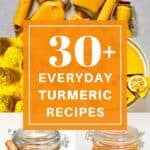









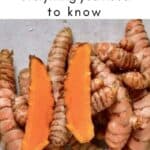









This article is very helpful and genuine. Thank you very much and I humbly request you to publish many more articles like this.
Thank you for your comment, Vengatesan!
Amazing, I needed a compilation with all of this information. And all the recipes – awesome 🙂